
I've heard that a lot of players are complaining about the save system of Capcom's new Resident Evil 6. I haven't played the game yet because RE5 sucked, and the demo for RE6 sucked, so I can't comment on that game. What I can do, though, is take a moment to reflect on the genius of the classic Resident Evil save system.
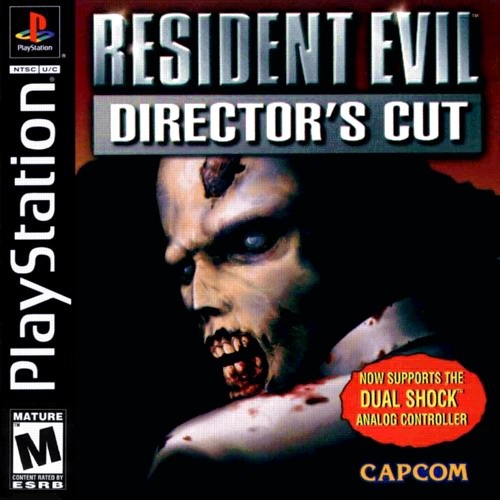
Most of my readers know me as a Silent Hill fan [boy], so it's uncommon for me to heap praise upon Resident Evil. But I actually am a big fan of the original game (it was one of my favorite PlayStation games). Maybe some day, I'll get around to writing about how Resident Evil 4 killed my interest in the franchise...
Industry norms
Resident Evil took a unique path in terms of it's save-game system. I'm not sure if it was the first to use this particular style of system, but it was definitely one of the best implementations that I played!
During the PSX era of the late 90's, game saves generally took one of 3 forms:
Resident Evil falls firmly in that last category, but with one significant (and game-changing) caveat: in addition to only being able to save at pre-defined locations, the ability to save was also tied to a consumable inventory item!
Making saving part of the game
In order to save your game in Resident Evil, you first needed to find one of the many typewriters scattered throughout the mansion, and then you needed to consume an inventory item called an "ink ribbon" in order to actually perform the save. Tying the ability to save to a consumable inventory item that was in limited supply was absolutely genius in the context of game in the "survival horror" genre.
Resource management in survival horror
Survival horror games traditionally required the player to carefully manage their resources and be very judicious with their use of supplies. In addition to being put in frightening circumstances and being challenged by scary creatures, the player had to deal with the stress of wondering when and where they'd find that next box of handgun bullets, or that next first aid kit so the character can stop limping around.
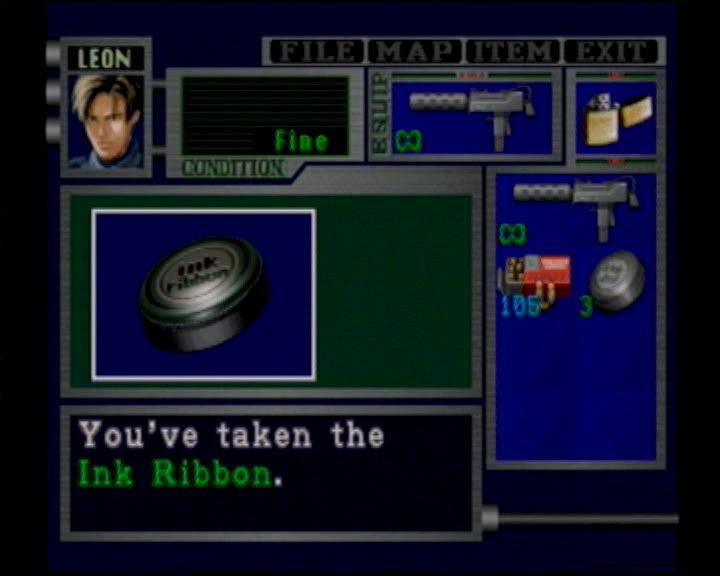
Ink Ribbons were scattered throughout the game world and consumed whenever the player saved at a typewriter.
Resident Evil took this one step further by making game saving a consumable resource that needed to be managed just like ammunition and healing supplies. You didn't know how many ink ribbons the game would provide, and you had to weight the benefit of keeping some in your inventory versus the cost of possibly not being able to pick up that extra box of shotgun shells if your inventory filled up.
The cost of dying
Older survival horror games were also less forgiving when it comes to checkpointing the player. If you died, you had to go all the way back to the last save point (usually being kicked back out to the main menu to load from the memory card). There was an actual consequence for dying. The game didn't just respawn you right where you left off. If you hadn't saved in over two hours, and then you died, then you just lost that whole two hours of gameplay! it was pretty damned annoying and inconvenient, but if you lost two hours of progress because you didn't save, you wouldn't make that mistake again! So you may have to replay an hour or two of gameplay once, but then you're done with it and you move on.
Nowadays, gamers are stuck replaying the same five-minute segment of a game over and over again for half an hour or more before you finally memorize where every enemy is and the optimal order and technique for killing them. The games are designed to force the player to progress via application of rote memorization. Didn't game design move beyond the conventions of trial-and-error platforming back in the 90's? It's even more annoying and tedious because you're stuck doing the same short tasks over and over again instead of just replaying a large chunk of the game. Modern games practically force the player to play recklessly - because it's more "exciting". There's very little tension or anxiety because you're just not afraid of dying. And all those exciting action set pieces just get boring and dull because you have to keep replaying them over and over again until you "solve" them the exact way that the designers wanted you to.
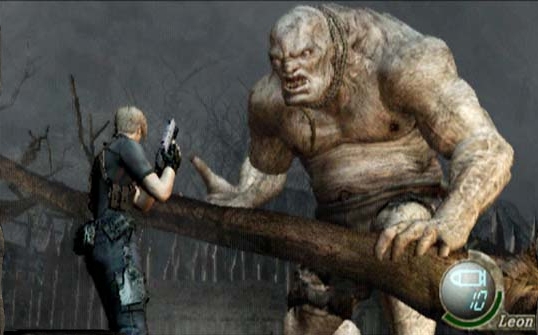
Does this guy look intimidating?
Yeah, sure.
Is he actually scary?
Not really, because you know that if you die, you'll just respawn right here to fight him again.
No loss. No fear.
You also don't learn from your mistakes or gain any real skill in the game. You may become a master at completing that one little room full of bad guys, but that rote memorization of a specific room or hallway doesn't necessarily transfer to the rest of the game. All you did was waste your time.
If you have to go back and replay an hour or two, that at least gives you an opportunity to learn from your mistake and change your strategy. You can take a different route, try to better optimize your supplies, or more fully explore the preceding areas to look for an advantageous weapon or trick to beating your enemy. Bosses could even be treated as long, complicated puzzles in which your earlier activities contribute to the ease with which you defeat the boss.
Nowadays you can't do any of that stuff. You just start where you died with the same equipment, under the same circumstances, with no opportunity approach the situation differently or change your preparation. And if there is a trick to beating the boss, it has to be located right there in that same room because you don't have an opportunity to go back and find it in that room you passed 20 minutes ago.
In the older games, much of the challenge came from the greater sense of attrition as the enemies slowly drain your resources and the player must carefully decide what to take with you and what to leave behind. Not even knowing where your next objective is makes every bullet fired and every health kit used feel that much more significant.
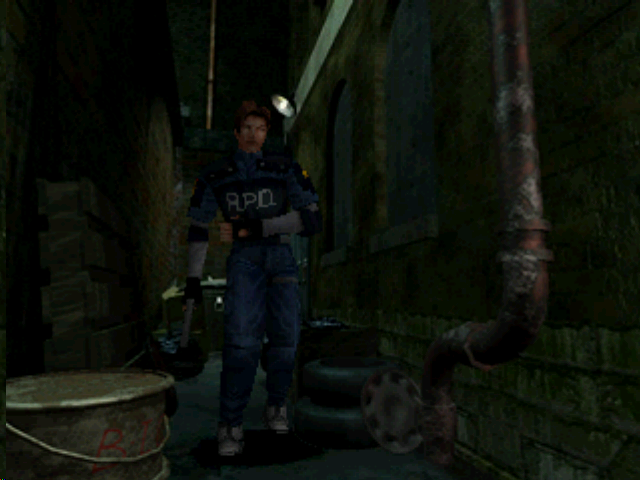
Much of the challenge came from attrition, and you had to judiciously use your resources.
The fear of the unknown
Being checkpointed automatically takes the power of saving away from the player, and puts the onus on the game's designers to ensure that the player can continue to progress. It's comforting to know that after any given encounter, you are going to be checkpointed and probably restocked with supplies and ammunition. You have to be, because the game doesn't let you go back and hunt for supplies that you missed or improve your strategy to conserve the supplies that you have.
Not being checkpointed at every door, on the other hand, creates a passive fear of the unknown. It's the player's responsibility to chose when to save and ensure that they remain in a good enough condition to warrant overwriting the old file. There's real risk associated with moving forward with the game because there could be a ferocious monster or deadly trap behind every door or around every corner. And there was a small chance that you could back yourself into an unwinnable situation. Sure it's inconvenient, but it adds realistic challenge to the game.
But if you know that every door acts as a checkpoint, then there's no fear of the unknown. You can power through the game at whatever pace you want and not have to worry too much about the risks. If you fail, just keep doing it over and over again until you get it right - or get lucky. It can create a sense of nihilism in the player, since your actions may feel completely meaningless.
This is one of the reasons that I love Demon's Souls (and its successor Dark Souls) so much! You know that imminent death is beyond every corner, and if you're not careful, you're going to have to go all the way back to the start of the level and lose your precious experience. By not checkpointing the player ever ten steps, the character starts to feel much more like a person whose life you value, rather than just a disposable automaton that you can throw at zombies until the zombies are gone.
The pressure to save your game, and the genius of Resident Evil
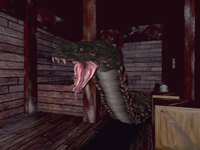
This cheesy-looking snake in the first game is much more frightening than the troll pictured above because:
a.) There's a buildup of anticipation,
b.) You may not have saved in hours.
Since there's real consequences to death in the older survival horror games, there is a constant pressure to save your progress. Many people - myself included - fall into the habit of saving at every save point we come to. It deflates a lot of the tension.
That's where the true genius of Resident Evil's system comes into play. You feel pressured to conserve your valuable ink ribbons. They are in limited supply, and if you don't use them wisely, you may run out long before the game is over. Then you'll be screwed. So when you come across a typewriter, you might have the angel on your right shoulder saying "save now! What if you die?", while the supply-managing devil on your left shoulder is screaming "... but do I really need to spend that ink ribbon right now?"
Of course, you're not actually going to run out of ink ribbons. There's more than enough of them for any reasonable amount of use. I save every time I walked past a room containing a typewriter, and I never came close to running out. If I remember correctly, you could also stack 3 ribbons into one inventory slot, so it didn't take up that much room. Besides, most typewriters were right next to the "magic item box" that stores your excess gear, so you could always just retrieve your ink ribbons from that box just before you save, then dump them again.
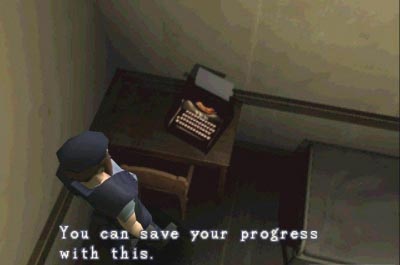
Haven't done this for a while?
You'd better!
But the actual availability of ink ribbons is irrelevant to the sense of anxiety and internal conflict that it creates. The bottom line is that it's a limited resource, so you feel compelled to manage it as such. This adds an element of strategy - and fear - to the simple act of saving. It incorporates saving into both the "survival" and "horror" elements of the game. Early in the game, it can be especially tense, because you have no idea how many ink ribbons will be available, and you probably only have a handful of them on you at any given time.
Bring the "survival" and the "horror" back into "survival horror" games!
Survival horror games are practically dead. The first Dead Space is the last mainstream game that I feel really qualifies. Its sequel barely even tried to be survival horror. The Silent Hill games have also completely lost their way, and Downpour is a culmination of how far survival horror has strayed. Nobody makes true survival horror any more. They're all dumb, simplistic action games and shooters. At least indie developers are still trying. I'm currently playing through Amnesia: The Dark Descent (full review here), and it's pretty damned good!
The death of survival horror, ironically, began with Resident Evil 4. Less than 2 years after Silent Hill 3 set a new standard for how frightening a game could be, Resident Evil 4 gave up entirely and decided to just be an action shooter.
Since then, survival horror games have been few and far between. Their controls, mechanics, challenges, and slow, methodical, cerebral gameplay have fallen out of favor with Call of Duty-chugging frat boys and casual gamers who can't go 20 seconds without entering a "kill streak". The lack of popularity for traditional survival horror isn't because they are bad games; rather, it's because they just don't sell as well as over-the-top spectacle shooters like Uncharted and Gears of War. It's a niche market, but publishers expect them to be massive mainstream blockbusters. So when a game like Dead Space is critically acclaimed, but doesn't meet the sales goals that EA had set for it, the entire genre is seen as "failing" by major publishers.
Modern design philosophies, however, just don't give the same experience as those classic survival horror masterpieces. Auto saves and frequent checkpoints diffuse all tension and fear in a game by removing all consequences from failure. It is almost impossible to maintain a horror atmosphere when your progress is saved every time you open a door!
Resident Evil made saving the game a genuine gameplay mechanic by pressuring the players to manage their fear of death and be judicious with their use of save games. It was brilliant!
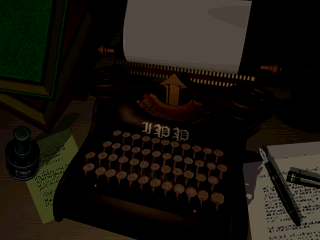
Would you like to save your progress?
[YES] NO